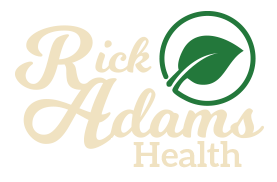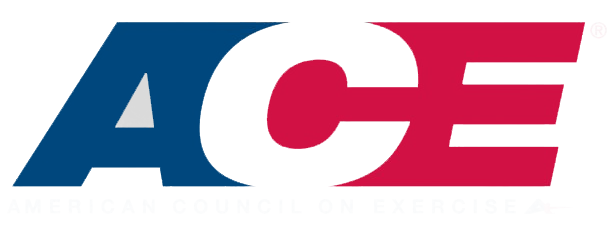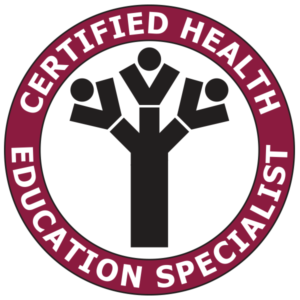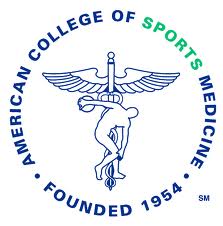[Video] What is a Health Coach?
Here is a quick video I made about What a Health Coach does and how they work with someone to help improve their health.

CHES, ACE Health Coach, AFPA Nutrition & Wellness Consultant
Natural Foods to Improve Blood Pressure
Heart disease is the number one cause of death worldwide. One of the largest causes of heart disease is due to long term high blood pressure. In my last blog, I addressed the issues that high blood pressure can cause and what foods can increase your risk of high blood pressure. Today we will focus on natural foods that may improve blood pressure that are simple to add to most anyone’s eating habits.
Cinnamon
One of my personal favorite spices is cinnamon, due not only to its great flavor but also to its perceived health benefits. Early studies have shown it’s a natural source to assist in managing high blood pressure. It has shown to improve systolic blood pressure (blood pressure when the heart is contracting) and, to a lesser extent, diastolic blood pressure (blood pressure when the heart is between beats). Greater improvements were seen in people with Type I & Type II diabetes (Akilen).
Beet Juice
Studies have shown that beet juice can also assist in improving blood pressure. The nitrate in the beet juice is converted within the body into nitrite, which helps vasodilate (widen) blood vessels that reduce overall blood pressure. Beet juice has been shown to be part of a ‘”natural’ low-cost approach for the treatment of some cardiovascular disease” (Webb). The particular study showed improvement in one to two hours after volunteers ingested beet juice. The study used two cups of beet juice before each test, so consuming enough juice in an ordinary day seems quite reasonable.
Cayenne Pepper
Another spice that studies have shown may improve blood pressure is cayenne pepper. It contains a natural chemical compound called capsaicin that promotes vasodilation as well as improvements in sodium retention, both of which lead to improved blood pressure (McCarty). About a half teaspoon of cayenne pepper in water can help improve blood flow and assist in removing excess sodium from the body. Cayenne pepper can be used on a wide variety of foods to add flavor and assist in improved heart health.
Making a change to improve your dietary health and heart health does not have to be difficult. All of these items can be easily added to most regular dietary habits. Cinnamon and cayenne pepper can be added to food items or just combined with water to drink. Beet juice can be had with a meal or between meals. Small, simple changes and additions can make an impact, improve your overall health, and assist in managing healthy blood pressure.

CHES, ACE Health Coach, AFPA Nutrition & Wellness Consultant
References
- Akilen, Pimlott, Tsiami, Robinson N. “Effect of short-term administration of cinnamon on blood pressure in patients with prediabetes and type 2 diabetes.” https://www.ncbi.nlm.nih.gov/pubmed/23867208. October 23, 2013. Vol 29, Issue 10.
- McCarty, Dinicolantonio, O’Keefe. “Capsaicin May Have Important Potential for Promoting Vascular and Metabolic Health.” http://openheart.bmj.com/content/2/1/e000262. June 17, 2015.
- Webb, Patel, Loukogeorgakis, Okorie, Aboud, Misra, Rashid, Miall, Deanfield, Benjamin, MacAllister, Hobbs, Ahluwalia. “Acute Blood Pressure Lowering, Vasoprotective, and Antiplatelet Properties of Dietary Nitrate via Bioconversion to Nitrite.” http://hyper.ahajournals.org/content/51/3/784. February 20, 2008.
Managing your Health by Managing your Sodium Intake
Keeping blood pressure in check can be easier said than done because it is very easy to over-consume sodium on an average day. Roughly 75 million American adults have high blood pressure. High blood pressure is a major contributor to stroke and heart disease. In college I often had to rewrite diets as part of classwork and I always noticed that sodium was the hardest to improve because so many foods are high in sodium. Making a change to reduce sodium in your eating habits can be overwhelming. You may wonder why it is important to keep your sodium levels in check; let’s find out.
Sodium is needed in the body to function properly; after all, it is one of the electrolytes. Sodium assists in muscle contraction and proper functioning of the nervous system. If your body has too little sodium, you may feel tired, lightheaded, or mentally foggy. Unfortunately, it is incredibly easy to consume far too much sodium on a daily basis. Some studies show the lowest amount of sodium with which a person can still function is around 500 milligrams (mg) per day (Thalheimer). That is roughly around two servings of canned beans.
The average American consumes over 3,000 mg of sodium a day, which is well above the recommended limit of 2,000 mg a day (Mayo Clinic). Sodium causes the body to retain water, so when a person consumes large amounts of sodium, it causes their heart to pump more liquid in their bloodstream. Simply, the heart is forced to work harder, which results in increased blood pressure. Therefore the heart gets overworked and wears out more quickly.
Certain foods are high in sodium, and it is important to limit them. Canned foods, frozen meals, boxed foods, and many restaurant items are often high in sodium. Sodium keeps food from spoiling quickly and gives it a longer shelf life. This is why high levels of sodium are added to these types of foods during processing. Fresh foods are always going to be a better option for lower levels of sodium. Flash frozen bags of fruits and vegetables are also fine options. Also, foods high in potassium are great options because potassium helps balance fluids by flushing excess sodium from your body (Myers).
As I mentioned earlier, it can be tough to improve sodium levels in the beginning. It seems that everywhere you turn, foods are packed with sodium. A good way to start is to focus on making a few small changes initially and build off of that. More food is processed today than at any time in the past. Excessive sodium increases blood pressure, known as the “silent killer” because it usually does not have obvious effects until a serious medical event occurs. If your blood pressure is higher than the doctor would like use some of this information to get yourself on the right track.

CHES, ACE Health Coach, AFPA Nutrition & Wellness Consultant
References
- Get the Facts: Sodium and the Dietary Guidelines. Centers for Disease Control and Prevention. http://www.cdc.gov/salt/pdfs/sodium_dietary_guidelines.pdf. April 2016.
- Myers, Jasmine. “What Does Potassium Do For Your Body?” http://vitamins.lovetoknow.com/ what-does-potassium-do-body. Accessed February 22, 2017.
- Thalheimer, Judith. “Spotlight On Sodium: How Much Is Too Much, and How Little Is Too Little.” Today’s Dietician. Nov 2014: Pg 26.
- Sodium: How to Tame Your Salt Habit. Mayo Clinic. http://www.mayoclinic.org/healthy-lifestyle/nutrition-and-healthy-eating/in-depth/sodium/art-20045479. April 16, 2016.
Rick Adams Health Coach on the Evansville Podcast
Enjoy my segment on the Evansville Podcast from January 2017 where we talk about New Years resolutions and important tips to improve your health.
Insurmountable Odds: How to make an Unlikely Comeback
The greatest comeback in Super Bowl history was coming back from a 10 point deficit. With 18 minutes left in Super Bowl LI, the patriots trailed the Falcons by 25 points. For most teams, this game would be all but over. Well, the Patriots ended up tying the game, sending it to overtime, and winning the game. In the 3rd quarter and up by 25 points, the Falcons were given a 99.5% chance of winning the game. Was it impossible to comeback and win that game? No. Was it incredibly unlikely? Absolutely. There is a lesson we can learn from this amazing comeback in our own lives.
We have all had times in our lives when our obstacles seem insurmountable. They can come in many different situations, like finances, family, health, education, or career. There are always times in life that will get you down, whether due to your own mistakes or to circumstances out of your control. That is when an important decision has to be made—do you push twice as hard to fight for your goal or do you decide it is too unlikely to accomplish and give up? If you want to reach your goals badly enough, no matter how difficult the resistance, there are ways to increase your chances of success.
Focus & Plan
When life gets tough, it can become stressful. Maybe you have to improve your performance at your job, or you have to improve your grades in school, maybe you find yourself running low on money. It can be tempting to become self-defeated, which makes the problem even more difficult to overcome. It is important to focus and plan your next steps. What steps can you take to start the process of getting yourself out of your bad situation? Every situation is different, so give some thought to your specific position and think of even small ways to make improvements. For example, rearrange your schedule to improve productivity at work, allocate more time to study, or cut back on unnecessary expenditures. The Patriots had to focus on scoring one touchdown before they could focus on the next three they would need in order to come back and win the game.
Take Advantage of Opportunities
In difficult times, you have to take advantage or even create your own breaks and opportunities. Look for openings to capitalize on and improve your situation. For example, is there a part-time job available to improve your finances, or can you make extra money from a hobby of yours? Is there a classmate that can help tutor you in school? Is your boss open to suggestions on improving the productivity of the workplace? Take advantage of situations like these, you already need all the help you can get. When all seemed lost, the Patriots forced turnovers and made big plays when they absolutely had to.
If you want something, you have to work hard for it. When you find yourself down in life, you have to work even harder. I will be honest, even when you make some changes to improve your situation, it may still be unlikely that you will succeed. The Patriots could have made all the correct moves near the end of the game and still easily lost. But remember this Super Bowl Patriots team when you find yourself on hard times in life. Even if you feel like you have a 99.5% chance of losing, you might just be able to win in the end.

CHES, ACE Health Coach, AFPA Nutrition & Wellness Consultant
Improving Energy Levels
People often tell me they want to be more active, get more done, and feel better on an average day. However, many say they do not have the energy that they wish they did. If you feel that way, what can you do to boost your energy levels and feel better than you do right now? Let’s break it down.
Hydration
Our bodies are mostly made of water, and many of the body’s functions require water. If you are not properly hydrated, then your body will not function properly and your energy levels will be low. Recommendations range from 64 ounces a day to half your body weight in ounces a day. Another important factor to consider is not just how much liquid you are drinking, but WHAT you are drinking. Certain liquids may not hydrate you as much as you may think. Caffeine is a diuretic, which means the body flushes out liquid by causing you to urinate more often. Coffee, soda, and tea can be poor choices for staying hydrated. When I was younger, I would drink three to four sodas a day. My energy levels were up and down throughout the day, and I often had trouble sleeping at night. Overall, my energy levels improved when I cut back on the soda (sugar and caffeine) and began to just drink water.
Eating Habits
What you eat can be just as important as the liquids you drink. Certain foods can lead to improved energy levels, while others decrease energy levels. Dark leafy greens offer many energy boosting vitamins and minerals, such as iron. Protein rich foods help keep muscles strong when combined with strength exercise. Certain foods like simple carbohydrates can leave you feeling bloated and tired throughout the day, especially when overeaten. Try focusing on fruits and vegetables early in your meals to fill up more on high-quality foods before your regular meal.
Exercise
To improve your energy levels, you also need to take into consideration your exercise habits. Being physically active leads to having strong bones and muscles as well as an improved cardiovascular system. Resistance exercise makes your body physically stronger, allowing you to support weaker areas of the body (lower back, knees, and hips.) Cardiovascular exercise helps improve the efficiency of blood flow throughout the body. This means that blood pressure, heart rate, and oxygen flow to muscles and organs will improve. The cardiovascular system can now function more efficiently and with less effort. Also, exercise early in the day has been shown for most people to improve energy levels throughout the day.
Sleep
All of the improvements I have listed above may not matter much without the proper sleeping habits. Most people need the recommended seven to eight hours per night. Everyone is different (I knew a man that only needed four hours a night!), so pay attention to what makes you feel the most rested. Make sure your sleep is as consistent as possible; not only does your body expect the same amount of hours per night but also the same timeframe (Example: 11 pm to 7 am). Lack of proper sleep can lead to general fatigue, lack of energy to perform exercise, mental fogginess, and even increased hunger.
As you can see, there are several areas you can work on to improve your energy levels. I would suggest working on one area at a time. Also, work on the easiest area first. If it might be hard to work on the exercise and eating habits, then focus on the sleep and hydration first. Once you feel it has become a consistent habit, move on to the next area you want to work on. With some dedication you can be more energetic, more productive, and happier.

CHES, ACE Health Coach, AFPA Nutrition & Wellness Consultant









